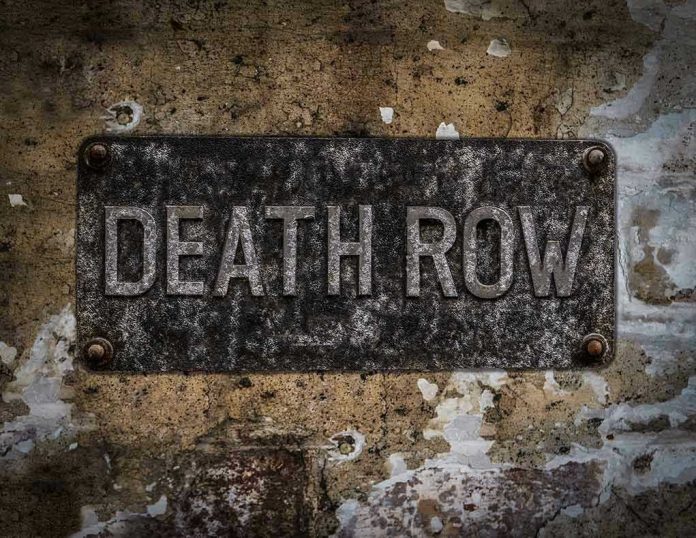
When a condemned man refuses to choose his own fate, the state of Tennessee finds itself on trial—caught between the electric chair’s legacy and the controversial science of lethal injection.
Story Highlights
- A Tennessee death row inmate declined to select between electrocution and lethal injection, forcing the state to choose for him.
- The decision exposes deep legal, ethical, and procedural dilemmas in the state’s execution protocols.
- Tennessee remains one of the few states still offering the electric chair as an option.
- Ongoing litigation and recent protocol changes cast doubt on the future of capital punishment in Tennessee.
When the State Chooses Death: Nichols’ Refusal Sparks New Debate
Harold Wayne Nichols, convicted of rape and murder in 1988, now faces execution not by his own choice but by the machinery of law. Tennessee law grants inmates sentenced before 1999 the rare power to choose between the electric chair and lethal injection—a privilege that Nichols, for his December 2025 execution, has refused to exercise. Instead, state law will default to lethal injection, unless Nichols changes his mind within two weeks. The case tosses the spotlight onto the uneasy intersection of inmate agency and state responsibility, a tension that has become a defining feature of Tennessee’s death penalty system.
Tennessee death row inmate declines to chose between the electric chair and lethal injectionhttps://t.co/HpGiXA3Gna #News
— Observing Time 🏴☠️ (@TimeObserving) November 11, 2025
Nichols’ refusal comes at a moment when Tennessee’s execution protocols are under intense scrutiny. In 2022, an independent review revealed that lethal injection drugs used in recent executions had not been properly tested. The resulting pause in executions led to the December 2023 rollout of a new protocol using pentobarbital—a change intended to sidestep past failures but which now faces its own legal challenges. With Nichols’ execution scheduled for December 11, 2025, and a trial on the new protocol’s legality set for April 2026, the state’s ability to carry out capital punishment is far from certain.
Electric Chair vs. Lethal Injection: Tennessee’s Unusual Dilemma
Few states still offer the electric chair as an option, and only Tennessee has used it multiple times in the past decade. The electric chair’s gruesome history, marked by botched executions and public outcry, seemed destined for retirement until concerns about lethal injection’s reliability pulled it back into the spotlight. Nichols’ earlier choice of electrocution in 2020 was itself a protest against the flawed three-drug protocol, which was later found to be compromised by procedural errors. His current refusal to choose is both a statement and a gamble, forcing the state to reckon with the consequences of its own policies.
Death row inmates in Tennessee have increasingly opted for electrocution, citing fears of botched lethal injections that could lead to prolonged suffering. Yet electrocution itself remains controversial, with critics arguing it is an outdated and inhumane method. The state’s willingness to provide a choice reflects not so much compassion as a tacit admission that neither option is without serious risks and moral hazards.
Who Holds the Power: Stakeholders in Tennessee’s Death Penalty Drama
At the heart of the Nichols case are competing interests and authorities: Nichols himself, the Tennessee Department of Correction, Governor Bill Lee, attorneys advocating for inmate rights, and the family of Nichols’ victim, Karen Pulley. The Department of Correction and Governor Lee hold ultimate power over execution logistics and reprieves, while inmates’ agency is strictly circumscribed by law and procedure. Legal advocates and courts act as checks on state power, intervening when protocols or inmates’ rights are challenged. The victim’s family, meanwhile, remains an indirect but deeply affected stakeholder, seeking justice and closure amid the ongoing controversy.
Recent statements from the Department of Correction affirm Nichols’ two-week window to reconsider his decision, as attorneys for inmates press ahead with legal challenges to the new protocol. With a trial scheduled for April 2026, the outcome could reshape not only Nichols’ fate but the future of capital punishment in Tennessee and beyond.
Legal Uncertainty, Public Controversy, and the Future of Execution Protocols
Short-term, Nichols’ execution may proceed under the new pentobarbital protocol, but ongoing litigation could delay or even block it. Long-term, the legal battles over execution methods may force Tennessee to confront the realities of administering capital punishment in an era of increasing public skepticism and legal complexity. The case highlights broader issues: the sourcing and testing of lethal injection drugs, the transparency of execution protocols, and the rights of inmates forced to choose between two deeply contested forms of death.
Legal experts and advocacy groups criticize Tennessee’s protocols for both lack of transparency and repeated procedural errors. Some argue that allowing inmates to choose is a pragmatic concession to the unreliability of lethal injection, while others insist that the very act of choosing is itself a cruel burden. Tennessee’s retention of the electric chair stands as a stark reminder of the unresolved debates over humane execution methods—debates that this case thrusts back into the spotlight, with national implications.
Sources:
WPLN: Tennessee makes final preparations to use its electric chair again
WFRORadio: Death row inmate declines to chose between the electric chair and lethal injection
Death Penalty Information Center: Methods of Execution













